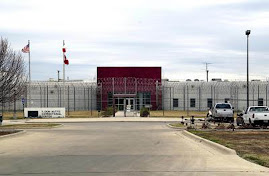Theresa Pantazopoulos, Senior Media Officer (917) 701.7991 mobile (212) 551.2964 office
theresap@womenscommission.org
skype: tesspantaz
June 12, 2008 (New York, NY)
FOR IMMEDIATE RELEASE
On June 16, 2008, the U.S. government will be another step closer to expanding the detention of immigrant families. Over the last two months, the Department of Homeland Security (DHS) has solicited proposals for the construction of up to three new family detention centers that would hold as many as 600 parents and children.
The Women's Commission calls on Immigration and Customs Enforcement (ICE) to immediately halt the alarming growth of family detention. "This is a system that has already been found to be completely inappropriate for families, and we are deeply distressed by this expansion," said Michelle Brané, director of the detention and asylum program with the Women's Commission for Refugee Women and Children. "What's more, it ignores the explicit directive of Congress that ICE release families whenever possible."
The decision to add new facilities to the agency's roster of family detention centers comes despite a 2007 lawsuit alleging that children detained at the T. Don Hutto Residential Center in Taylor, Texas were subjected to conditions of confinement that violated minimum standards of care for minors in federal custody. The resulting settlement forced ICE to undertake substantial modifications in physical appearance, medical care, disciplinary actions, education and recreation at the Hutto facility.
ICE responded to the lawsuit and massive public outcry by issuing "family residential standards." However, they are based on adult correctional standards intended to regulate the behavior of criminal inmates, not preserve and protect the unique needs of non-criminal families. Also, DHS' Request for Proposals for the new facilities violates its own standards in an alarming number of critical areas, including the provision of medical care, education, recreation and the use of restraining devices. "ICE's failure to comply with its own standards is further evidence that the agency does not intend to open—or at the very least, properly administer—family-centered, non-penal residential programs," according to Brané.
Notwithstanding Congressional directives and the disturbing conditions the Women's Commission found in family detention centers, ICE appears to be making detention the national model for addressing families in the immigration system. Although the proposal refers to the new centers as residential facilities, it prescribes services for adults and minors who will be "detained" on the premises and specifies the use of penal-type security mechanisms including fencing, cameras and physical counts.
The Women's Commission believes that detention is never good for families. Family units should enjoy a preference for release, should be considered for participation in alternatives to detention programs when simple release is not possible, and when no options for release or alternatives exist, should be housed in non-penal, homelike facilities operated by entities with child and family welfare expertise and that are subject to independent oversight.
skip to main |
skip to sidebar



(photo ©Walt Harrison.)

(photo ©Walt Harrison)

(photo ©Walt Harrison)

(photo ©Walt Harrison)

Upcoming Events
Dignity Not Detention Vigil | T. Don Hutto Detention Center | Taylor, TX. | 7pm, Saturday, August 7th, 2010. See post.
What is T Don Hutto?
The T Don Hutto facility held men, women (some pregnant), children, and infants from May 2006 to September 2009. Administered by the Corrections Corporation of America (CCA), the country's largest for-profit corrections company, the center now holds around 500 adult women, many of whom are seeking asylum.
The Berks County Family Care Shelter still detains families. We continue to advocate for an end to family detention policy.
ICE champions the facility as a model for "civil" detention, despite patterns of sexual abuse and the continued detention of low-risk noncitizen women.
This blog is dedicated to providing information about Hutto and women's detention issues.
The Berks County Family Care Shelter still detains families. We continue to advocate for an end to family detention policy.
ICE champions the facility as a model for "civil" detention, despite patterns of sexual abuse and the continued detention of low-risk noncitizen women.
This blog is dedicated to providing information about Hutto and women's detention issues.
100 Events in 100 Days to End Family Detention
We did it! People like you came together and organized over 100 events to end family detention in Obama's first 100 days. Our online petition has over 55,000 signatures and counting! Our deepest gratitude!
Thanks to your support, ICE ended family detention at Hutto in September of 2009. The facility now holds exclusively women. We continue to advocate for their rights to due process, fair immigration proceedings, and non-penal custody.

Thanks to your support, ICE ended family detention at Hutto in September of 2009. The facility now holds exclusively women. We continue to advocate for their rights to due process, fair immigration proceedings, and non-penal custody.



Download the 2009 End Family Detention Calendar!
Check out our new photo gallery!
Followers
Further information
Locking Up Family Values, The most complete analysis of conditions inside T Don Hutto and Berks, a second family detention center in Pennsylvania. Published March, 2007
ICE's (Immigration & Customs Enforcement) newly-published standards on family residential standards.
Grassroots Leadership's report on CCA's history and business practices. Published Dec, 2003
Financial Analysis of the Impact of Undocumented Immigrants in Texas. Published by Carole Keeton Strayhorn, Texas Comptroller. Dec, 2006
The Sentencing Project's
Reducing Racial Disparity in the Criminal Justice System. Oct, 2000
Rates of Incarceration by Race & Ethnicity The Sentencing Project. July, 2007
Click here for a list of detention facilities across the U.S.
ICE's (Immigration & Customs Enforcement) newly-published standards on family residential standards.
Grassroots Leadership's report on CCA's history and business practices. Published Dec, 2003
Financial Analysis of the Impact of Undocumented Immigrants in Texas. Published by Carole Keeton Strayhorn, Texas Comptroller. Dec, 2006
The Sentencing Project's
Reducing Racial Disparity in the Criminal Justice System. Oct, 2000
Rates of Incarceration by Race & Ethnicity The Sentencing Project. July, 2007
Click here for a list of detention facilities across the U.S.
Related Blogs and Links
America's Family Prison
a short film chronicling the rise of Hutto and its impact on detainees and the local community
The Least of These
a feature-length documentary that follows the implementation of family detention at Hutto, the lawsuit, and protests against the facility. Premiered at Austin's South-by-Southwest Film Festival in March of 2009.
The Sanctuary
a short film chronicling the rise of Hutto and its impact on detainees and the local community
The Least of These
a feature-length documentary that follows the implementation of family detention at Hutto, the lawsuit, and protests against the facility. Premiered at Austin's South-by-Southwest Film Festival in March of 2009.
The Sanctuary
A grassroots effort of pro-migrant, human-rights, and civil-rights bloggers and on-line activists dedicated to the enactment of meaningful immigration reform that is practical, rational, fair, and humane.
Homeland Gitmos
Follow an investigation of detainee treatment in American detention centers. An interactive website, complete with videos, detainee testimonies, photos, maps, and more.
Business of Detention
an exciting new interactive website examining the link between federal immigration policy and the corporations that are profiting off it
Detention Watch Network
a national coalition dedicated to tracking immigrant detention issues
Free the Children Myspace
one of the first websites devoted to covering Hutto
Grits for Breakfast
one of the best sources available on the TX criminal justice system
Migration Policy Institute
a nonpartisan think tank dedicated to the study of the movement of people worldwide
National Immigration Forum
to embrace & uphold America's tradition as a nation of immigrants
Pew Hispanic Center
chronicling Latinos' diverse experiences in a changing America
Texas Civil Rights Review
reports from the front lines of the fight for civil rights in TX
Texas Prison Bid'ness
information about the growing prison-for-profit industry in Texas
Follow an investigation of detainee treatment in American detention centers. An interactive website, complete with videos, detainee testimonies, photos, maps, and more.
Business of Detention
an exciting new interactive website examining the link between federal immigration policy and the corporations that are profiting off it
Detention Watch Network
a national coalition dedicated to tracking immigrant detention issues
Free the Children Myspace
one of the first websites devoted to covering Hutto
Grits for Breakfast
one of the best sources available on the TX criminal justice system
Migration Policy Institute
a nonpartisan think tank dedicated to the study of the movement of people worldwide
National Immigration Forum
to embrace & uphold America's tradition as a nation of immigrants
Pew Hispanic Center
chronicling Latinos' diverse experiences in a changing America
Texas Civil Rights Review
reports from the front lines of the fight for civil rights in TX
Texas Prison Bid'ness
information about the growing prison-for-profit industry in Texas
Blog about all things immigration.
Immigration Prof Blog
Research and reflection by leading immigration scholars
States without Nations
Jacqueline Stevens, political scientist, blogs about immigration, nationalism, and the state.
Dream ACTivist
Campaign to pass the DREAM ACT, which grants access to higher education for immigrant youth.
Immigration Prof Blog
Research and reflection by leading immigration scholars
States without Nations
Jacqueline Stevens, political scientist, blogs about immigration, nationalism, and the state.
Dream ACTivist
Campaign to pass the DREAM ACT, which grants access to higher education for immigrant youth.
Click on link to learn more about:
Highlights from Dec 16th vigil

(photo ©Walt Harrison.)

(photo ©Walt Harrison)

(photo ©Walt Harrison)

(photo ©Walt Harrison)
Blog Archive
-
▼
2008
(68)
-
▼
June
(8)
- ICE responds to anti-family detention op-ed
- Hutto Resolution Passes State Resolution Committee...
- Locked and Loaded: CCA, the private jailer and one...
- Barbara Hines: New ICE family detention centers a ...
- May 24th vigil YouTube footage from San Antonio Cu...
- No title
- Women's Commission Calls on ICE to Follow Congress...
- In the News: Central Texas groups denounce the SAV...
-
▼
June
(8)

Contact Info
For questions on T Don Hutto or the blog, please contact:
tuff [at] grassrootsleadership.org
tuff [at] grassrootsleadership.org
Supporting Institutions
ACLU of Texas, Amnesty International, Brown Berets of San Antonio, Grassroots Leadership, PODER, LIRS, Free the Children, Political Asylum Project of Austin, Catholic Charities of Austin, Casa Marianella, Casa Esperanza, Jolu Productions, Sin Fronteras of Houston, Southern Human Rights Organizers' Network, Texas Indigenous Council, Texans United for Families, University of TX Immigration Clinic, Women's Commission for Refugee Women and Children.
Thanks to all.
Thanks to all.
